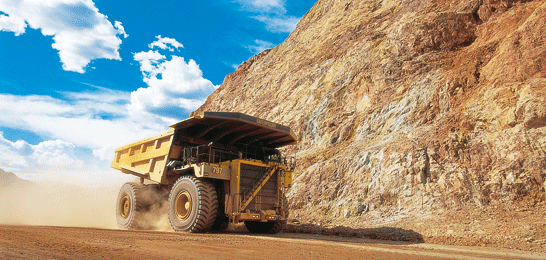Panamanian authorities announced that they have arrested 10 people for being part of an illegal mining network. They were operating for the so-called “Clan del Golfo”, in unauthorized sites for gold extraction in the Darién jungle.
The area is located on the border with Colombia, where they were causing serious environmental damage.
The operation took place on Thursday, and seven Panamanians and three Colombians were identified. It was carried out with the collaboration of authorities from the neighboring country as well.
Illegal Mining in Panama: the Operation
“Behind all this, there is a criminal organization that commits crimes in the border area, which is the Clan del Golfo,” said Larry Solís, the deputy director of the National Border Service (Senafront), to the attending press.
“Illegal mining can generate profits of 12 million dollars per year for this criminal group, the main drug cartel in Colombia,” Solís added.
 Illegal mining also affects Colombia.
Illegal mining also affects Colombia.
The operation, carried out on Thursday, resulted in the arrest of 10 people: seven Panamanians and three Colombians.
Panamanian authorities and the Colombian army collaborated in dismantling the network. The criminals were operating at least two mines illegally in the headwaters of the Mangle River, 5 km from the border.
They indicated that the mines are located in remote jungle areas with difficult access and dense vegetation.
How Mining Works
Authorities seized substances, tools, and other “implements used in the practice of this illegal activity,” stated the prosecutor Leyda Sáenz from Darién.
They also found camps in the area possibly used by mine workers. In some, there was still prepared food, hanging clothes, instruments, and tools apparently used for gold panning, as confirmed by an AFP collaborator.
According to Solís, the Clan del Golfo uses people they allegedly threaten or convince to work in these illegal activities.
“Illegal mining is a cancer that destroys our national parks and forests and is promoted by international drug and human trafficking mafias and cartels,” expressed the Minister of Environment, Juan Carlos Navarro.
Major Juvenal Velázquez of Senafront stated that Panama and Colombia will continue to collaborate to “neutralize all types of criminal activities.”
Illegal Gold Mining Releases Carbon into the Atmosphere and Contaminates Soil in Brazil
 Illegal gold mining.
Illegal gold mining.
The impacts of illegal gold mining are undeniable, and Brazil is a prime example. These impacts can be traced in a long chain that affects nature, biodiversity, and human health.
The government and science are still understanding the extent of the most recent damage, with the contribution of studies like the one recently published in the journal Science of the Total Environment.
The research, conducted in native and inactive gold mining areas in the country, estimated a 50% loss in carbon reserves. Furthermore, mercury concentration in soil and water reached 70%.
Have you checked out our YouTube channel? Subscribe now!

